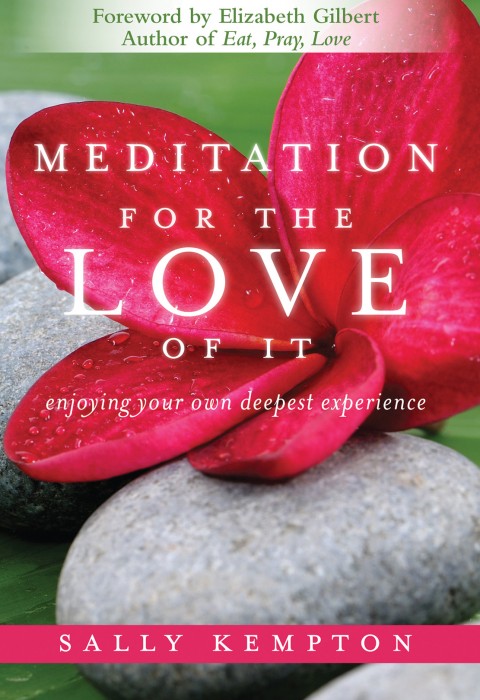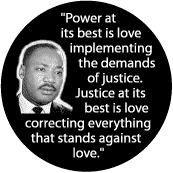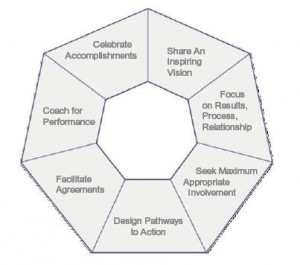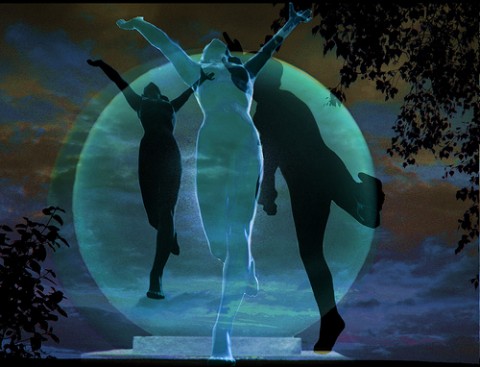The moon is most happy, When it is full.
 Photo by: Aonir
Photo by: Aonir
The moon is most happy
When it is full.
And the sun always looks
Like a perfectly minted gold coin.
Leave a comment Photo by: Aonir
Photo by: Aonir
The moon is most happy
When it is full.
And the sun always looks
Like a perfectly minted gold coin.
Leave a commentThis past week I’ve been in Florida for our family’s annual pilgrimage and a desperately needed reprieve from what has certainly been a challenging New England winter. And as in years past, I’ve had the fortune to be able to attend a speaker’s series that my father-in-law has been instrumental in putting together down here. Last Friday I got to hear from Zbigniew Brzezinski, former National Security Advisor to President Carter and counsel to numerous other American heads of state, both Democrat and Republican, on matters of foreign policy. Brzezinski had only 45 minutes to present what ended up being a dizzying tour of his perspective on the current state of geopolitics and suggestions for US strategy going forward. As grand (and certainly opinionated) as this undertaking was, I was most struck by how he began his talk, and the ensuing response. Read More
Leave a comment
We at IISC have the privilege of witnessing heartful, sometimes heart wrenching dialogue about critical issues in our world from multiple perspectives. We work with passionate laypeople and professionals focused on education, environment and sustainability, public health, peace and justice, youth development, racial justice, city planning and community development, to name a few disciplines.
I’m encouraged by a few themes that are coming up more and more in our work. And, I’m even more encouraged that increasingly, they are emerging as imperatives, not just “nice ideas.” As we facilitate processes and bear witness to the struggle to bring forth justice, here are some of the voices we’ve heard calling out: Read More
Leave a commentTalk of tending to our “interior condition” has been in the air and very active on this blog the past couple of weeks (see “What Love Looks Like in Action,” “Between Hope and a Hard Place,” and “Meditation for the Love of It”). In all of these posts there is a thread that makes the point that focusing on our inner selves, expressions of empathy, and cultivating mindfulness and deep connection to self and other(s) are vital to the work of transformational social change. In line with all of this, I’ve been re-reading a wonderful book that speaks about why and how we should make considerations of our individual and collective interiors central to our work.
In Inside-Out: Stories and Methods for Generating Collective Will to Create the Future We Want, Tracy Huston, coach, consultant, and founder of the Menlo Lab, speaks openly about her initial skepticism about and evolving embrace of focusing on the self. Huston enumerates the following five practical reasons why tending to our interior conditions makes sense (I have added some of my own editorial comments): Read More
Leave a comment
One of the guiding mantras here at the Interaction Institute is the idea that “the success of an intervention is directly proportional to the inner condition of the intervener.” This idea and our commitment to “the love that does justice,” help us to uphold those practices that nurture our inner condition and facilitate our capacity to love. It is with this commitment in mind that I share the following review:
Sally Kempton has written a wonderful book. Meditation for the Love of It is a breath of fresh air in this current wave of meditation literature. Pleased as I am by the booming interest in the practice of meditation, I am often frustrated by what feels like a one sided perspective of a beautifully multi-faceted tradition. A masterful teacher, a great writer who is able to transmit her own direct experience of the Self, Sally Kempton makes accessible a rich meditation tradition that could otherwise be relegated to the inaccessible realms of esoterica. Read More
6 CommentsIn her keynote address at Boston’s Martin Luther King, Jr. breakfast, Dr. Melissa Harris-Perry invited us to consider the meaning of Dr. King’s 1967 book, Where do We Go From Here: Chaos or Community (excerpt here) at in this political moment. She reminded us what was going on in 1966, as Dr. King wrote. The Freedom Movement had achieved many legal and legislative victories by then, (Brown vs. Board of Education supporting school desegregation and the Voting Rights Act to name just a few). The Movement and its victories created justifiable hope that the lives of people on the margins of our society could improve. At the same time, poverty and racism still created the need for continued struggle. By 1966-67, many felt their hope was no longer justifiable in the face of violent backlash and intractable injustices. In the face of withering criticism including charges of cowardice, Dr. King continued to urge the country toward community rather than chaos, without shrinking back from the justice issues before him. Read More
Leave a comment
Picking up from my post the other day (“Pauses for the Cause”) about the process learnings of our recent IISC retreat, I wanted to focus a bit on the content take-aways. As I previously mentioned, the reason for our coming together as a staff was to revisit and dive into the roots of our collaborative practice: networks, equity/power/inclusion, and “the love that does justice.” It wasn’t long before we were wondering whether these are not more appropriately called the lenses through which we look as we go about our collaborative capacity building and change work. And it did not take long after that for us to question whether the labels we have selected for these lenses are the appropriate ones. I want to spend the rest of this post looking at where our conversation took us with respect to love, in particular.
What’s love got to do with it? That was not exactly our guiding question, but we got there eventually through some of our struggles to reach shared understanding and agreement about what we mean when we say “the love that does justice.” Our facilitator engaged us in writing on stickies short phrases and sentences that explained what it means to integrate this into our practice. The activity yielded a plethora of multi-colored squares that we then organized into themes. Here is what emerged, categorically speaking: Read More
14 Comments 2011. A new year for us here at IISC to continue to move on the vision of ensuring that everyone engaged in social change work has some knowledge of and facility with Facilitative Leadership. Another year to restate and reframe the need for these critical skills to bring alive our goals of a more just and sustainable world. So why Facilitative Leadership? Here is my take . . . Read More
2011. A new year for us here at IISC to continue to move on the vision of ensuring that everyone engaged in social change work has some knowledge of and facility with Facilitative Leadership. Another year to restate and reframe the need for these critical skills to bring alive our goals of a more just and sustainable world. So why Facilitative Leadership? Here is my take . . . Read More
“We don’t talk about what we see,
we see only what we can talk about.”
– Fred Kofman
This week I’ve been rereading Donella Meadows’ Thinking in Systems and really savoring it. Each time I look at it, I pick up something new, not just about systems thinking but about life in general. I’ve been focused primarily on Meadows’ chapter “Living in a World of Systems,” which considers how we can work with complex systems while acknowledging that even when we understand them better, we cannot predict or control them. One of her suggestions is that we learn to pay attention to what is important, not just what is quantifiable. This is not a question of throwing out what we can quantify as being somehow overly reductionist. Rather, it is a matter of not giving up on what we cannot measure and making quantity more important than quality. How important this is for our social change work! Read More
Leave a comment
photo by partie traumatic
“Power without love is reckless and abusive, and love without power is sentimental and anemic. Power at its best is love implementing the demands of justice, and justice at its best is power correcting everything that stands against love.” Dr. Martin Luther King, Jr.
This often quoted comment by Dr. King forms the foundation of Adam Kahane’s new book, Love and Power: A theory and practice of social change. Melinda Weekes and I attended a recent book talk by Adam, attracted to the topic because, at IISC we’ve been thinking through and practicing the connections among power, love, networks and collaboration for years now. Much of what Adam shared resonates with our thinking. The book builds on the thinking of theologian Paul Tillich. His definitions are worth taking a closer look:
4 CommentsPart 1 of 2, go here for Part 2.

|Photo by LadyDragonflyCC|http://www.flickr.com/photos/19646481@N06/4332176853/|
Love as the practice of freedom has been on my mind these days. My good friend Cyndi Suarez, who is the co-director of Northeast Action, recently shared a bell hooks essay by the same title – I appreciated Cyndi’s e-mail:
“I was thinking today on just how much social change movements reflect the dominant culture. I just finished rereading an old-time favorite essay by bell hooks and had to share it with you. I feel it is as pertinent now as when I first read it 15 years ago. I wonder what would change if at least some of us focused on building love rather power.” Read More
10 CommentsPart 4 of Three Lenses for Collaboration
The work of social change takes place in history, we are not the first ones doing this work, nor will we be the last. We are part of that noble arch bending itself towards justice. In the United States the history of social change is punctuated by the prophetic voice of the Reverend Dr. Martin Luther King, Jr. Dr. King called us to beloved community and at the Interaction Institute we look at collaboration as a way to meet his call. I like to call this the lens of love.
Leave a comment